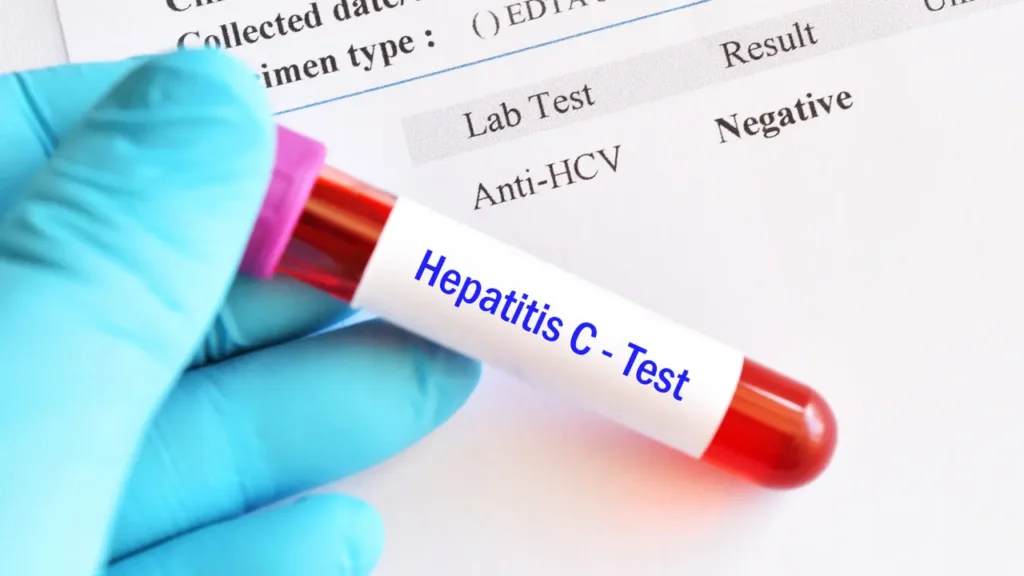The nutritional supplement known as AHCC, or Active Hexose Correlated Compound, has grown in popularity recently because of its possible health advantages. AHCC is generated from the mycelia of shiitake mushrooms and it is thought to improve the performance of the immune system. The nature of AHCC, its health advantages, the ideal dosage, any potential negative effects, drug interactions, and the most ethical ways to utilize this nutritional supplement will all be covered in this article. Additionally, the chemistry of AHCC and the physiological underpinnings of its impact on the body and brain will also be covered.
You May Also Like:
Dr Emil Nutrition Lion’s Mane Reviewed: A Leading Nootropic Mushroom Product
AHCC: Benefits, Dosage, Side Effects, Drug Interactions, and Other Important Information is an original (NootropicsPlanet) article.
Nature of AHCC
The mycelia of shiitake mushrooms are the source of unique polysaccharides, amino acids, lipids, and minerals that make up AHCC. Acetylated alpha-glucan, a polysaccharide that has been found to improve the immune system’s performance, is the primary active component of AHCC. AHCC can be produced by using a proprietary method of cultivating shiitake mycelia in a liquid media enriched with particular nutrients. The active compounds are then collected from the mycelia of the shiitake.
Health Benefits of AHCC
AHCC has demonstrated its health benefits in many ways. The following are a few of the most notable health advantages:
- Support for the immune system: AHCC has been demonstrated to improve the immune system’s performance, particularly by boosting the activity of natural killer cells. Natural killer cells are a class of white blood cells that aid the body in warding off pathogens and cancerous cells.
- Cancer prevention: The ability of AHCC to stop the growth of cancer cells has been researched. According to research, AHCC may aid in slowing the spread of cancer cells and enhancing the immune system’s reaction.
- Hepatitis C therapy: AHCC is believed to have hepatoprotective ability. Studies combined AHCC with conventional hepatitis C therapy to treat Hepatitis C virus infection. According to research, including AHCC in regular treatment plans can aid in lowering the virus’ viral load and enhancing liver function.
- Cardiovascular wellness: AHCC might also be advantageous for cardiovascular wellness. According to certain research, AHCC may aid in lowering blood pressure and raising cholesterol levels.

Chemistry of AHCC
AHCC is a mix of minerals, lipids, polysaccharides, and amino acids. Acetylated alpha-glycan is the active component of AHCC with immune-stimulating properties. Acetylated alpha-glucan is a modified version of beta-glucan, and the molecular structure of beta-glucan is altered by acetylation, which could increase its immune-stimulating effects.
Glycans essentially are polysaccharides made up of long chains of simple sugars such as glucose. They serve a variety of vital functions in the body, including storing energy and supporting the immune system. As mentioned, the mycelia part is collected and extracted after cultivating the shiitake mycelia in a liquid media enriched with particular nutrients. Mycelia is the vegetative portion of fungi and it is made up of a network of branching filaments known as hyphae.
Physiological Mechanism of AHCC
Shiitake mushroom-based dietary supplement AHCC has been found to have immune-boosting qualities. Acetylated alpha-glucan, a polysaccharide known to be the main component of AHCC works to boost the immune system. The immune system is essential in protecting the body from foreign invaders like bacteria, viruses, and cancer cells. The immune system is made up of a complex network of cells, tissues, and organs. Natural killer (NK) cells, a subset of white blood cells that are essential in the body’s defense against cancer cells and viral infections, are one of the main elements of the immune system.
According to studies, AHCC may improve NK cell performance and promote the immune system’s reaction to cancer cells. For instance, a study has found that AHCC improved the response to treatment in patients with hepatitis C virus infection by increasing the activity of NK cells and increasing the production of cytokines, which are signaling molecules that are essential in the immune response. This study was published in the Journal of Hematology.
Another study indicated that AHCC improved the immune response to cancer cells in mice by raising the quantity and activity of NK cells and T cells. T cells and NK cells are essential in the immunological response to cancer cells.
Additionally, AHCC also promotes cardiovascular health. A study indicated that AHCC enhanced endothelial function in mice fed a high-fat diet. Endothelial function is the capacity of blood vessels to widen in response to increased blood flow.
Although the precise mode of action of AHCC is not fully understood, the existing knowledge shows that AHCC is able to stimulate a number of immune system signaling pathways and improve the performance of NK cells and other immune cells. To completely comprehend the physiological mechanism of action of AHCC and its potential health advantages, more research is required.

Optimal Dosage of AHCC
There is no set dosage for AHCC. The best dosage will depend on the patient and the illness being treated. However, the majority of investigations have employed daily doses of between 1 and 3 gm. It is advised that people take the prescribed dosage of AHCC, which is available in capsule form.
Side Effects of AHCC
AHCC is generally regarded as safe, and its use has not been linked to any major negative effects. Some people, however, can encounter minor side effects like nausea, diarrhea, or bloating. Usually transient, these side effects can be mitigated by lowering the dosage.
Potential Substance Interactions with AHCC
AHCC has no known drug interactions, and it is generally regarded as safe to take with other prescription drugs or dietary supplements. Before using AHCC, people should speak with their doctor, especially if they are using prescription drugs or have a medical issue that hasn’t been treated yet.

Best Responsible Use of AHCC
The individual and the particular ailment being treated will determine the best responsible usage of AHCC. Here are some general recommendations for using AHCC:
Before using AHCC, talk to your doctor, especially if you have a pre-existing ailment or are taking prescription medication. They can advise you on the ideal dosage and usage period as well as assist in determining whether AHCC is suitable for you.
Observe the dose recommendations provided by the manufacturer because there is no set dosage for AHCC. AHCC doses of 1-3gm per day have been utilized in several studies. It is crucial to start with a low dosage, raise it gradually as needed, and not go over the advised amount. You should also take AHCC after meals to improve absorption. AHCC is a fat-soluble substance, hence, it is better absorbed when consumed with a fat-containing meal. When taking AHCC on an empty stomach, absorption and effectiveness may be compromised.
Watch out for negative effects. Although AHCC is typically regarded as safe, a few people may develop minor side effects such as nausea, diarrhea, and headaches. If you encounter any negative effects, discontinue the use of AHCC immediately and speak with your doctor. AHCC also cannot take the place of a balanced diet and active lifestyle. Maintaining overall health and well-being requires a balanced diet, consistent exercise, effective stress management, and adequate sleep.
All in all, to guarantee maximum effectiveness and safety, AHCC should be used sensibly and under the supervision of a healthcare professional.
AHCC:
Conclusion
Although a lot of people believe going all-natural is always the best, however, in this article, we would like to highlight the synthetically made nutritional supplement AHCC, Active Hexose Correlated Compound can perform better than its all-natural counterpart. AHCC is derived from the mycelia of shiitake mushrooms.
There is a proprietary method to culture shiitake mycelia before extracting the compounds from the mycelia of the shiitake. It is well believed that AHCC can support your body’s immune system. It can also protect your liver from hepatitis C infection and support your immune system. The most important characteristic of AHCC is its immune-boosting effect. All in all, AHCC is a notable supplement to try out if you are looking to improve your general well-being.

References:
- Active Hexose Correlated Compound (AHCC) Promotes an Intestinal Immune Response In BALB/C Mice and In Primary Intestinal Epithelial Cell Culture Involving Toll-Like Receptors TLR-2 And TLR-4. Retrieved from:https://pubmed.ncbi.nlm.nih.gov/25596849/
- Effect Of Active Hexose-Correlated Compound in Women Receiving Adjuvant Chemotherapy for Breast Cancer: A Retrospective Study. Retrieved from:https://pubmed.ncbi.nlm.nih.gov/23829813/
- AHCC® Supplementation to Support Immune Function to Clear Persistent Human Papillomavirus Infections. Retrieved from:https://pubmed.ncbi.nlm.nih.gov/35814366/
Important Note: The information contained in this article is for general informational purposes only, and should not be construed as health or medical advice, nor is it intended to diagnose, prevent, treat, or cure any disease or health condition. Before embarking on any diet, fitness regimen, or program of nutritional supplementation, it is advisable to consult your healthcare professional in order to determine its safety and probable efficacy in terms of your individual state of health.
Regarding Nutritional Supplements Or Other Non-Prescription Health Products: If any nutritional supplements or other non-prescription health products are mentioned in the foregoing article, any claims or statements made about them have not been evaluated by the U.S. Food and Drug Administration, and such nutritional supplements or other health products are not intended to diagnose, treat, cure, or prevent any disease.


